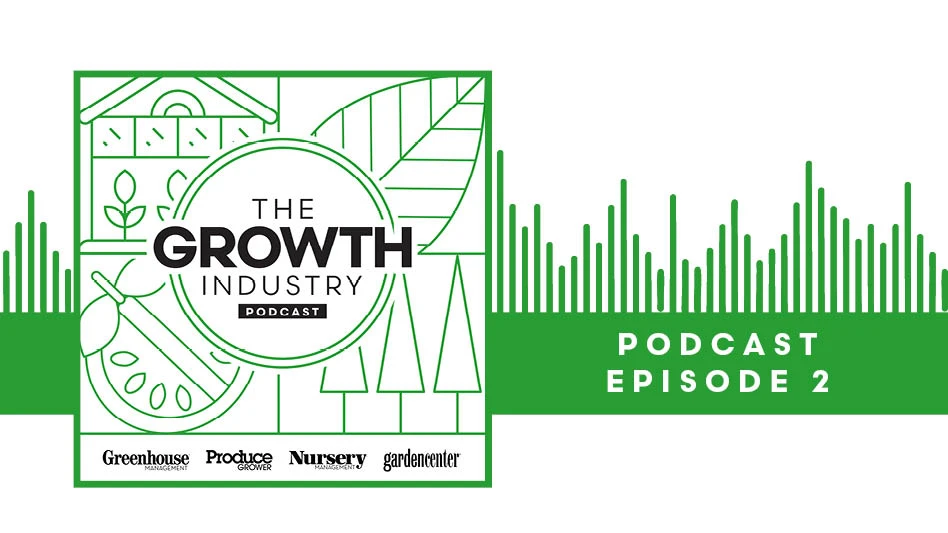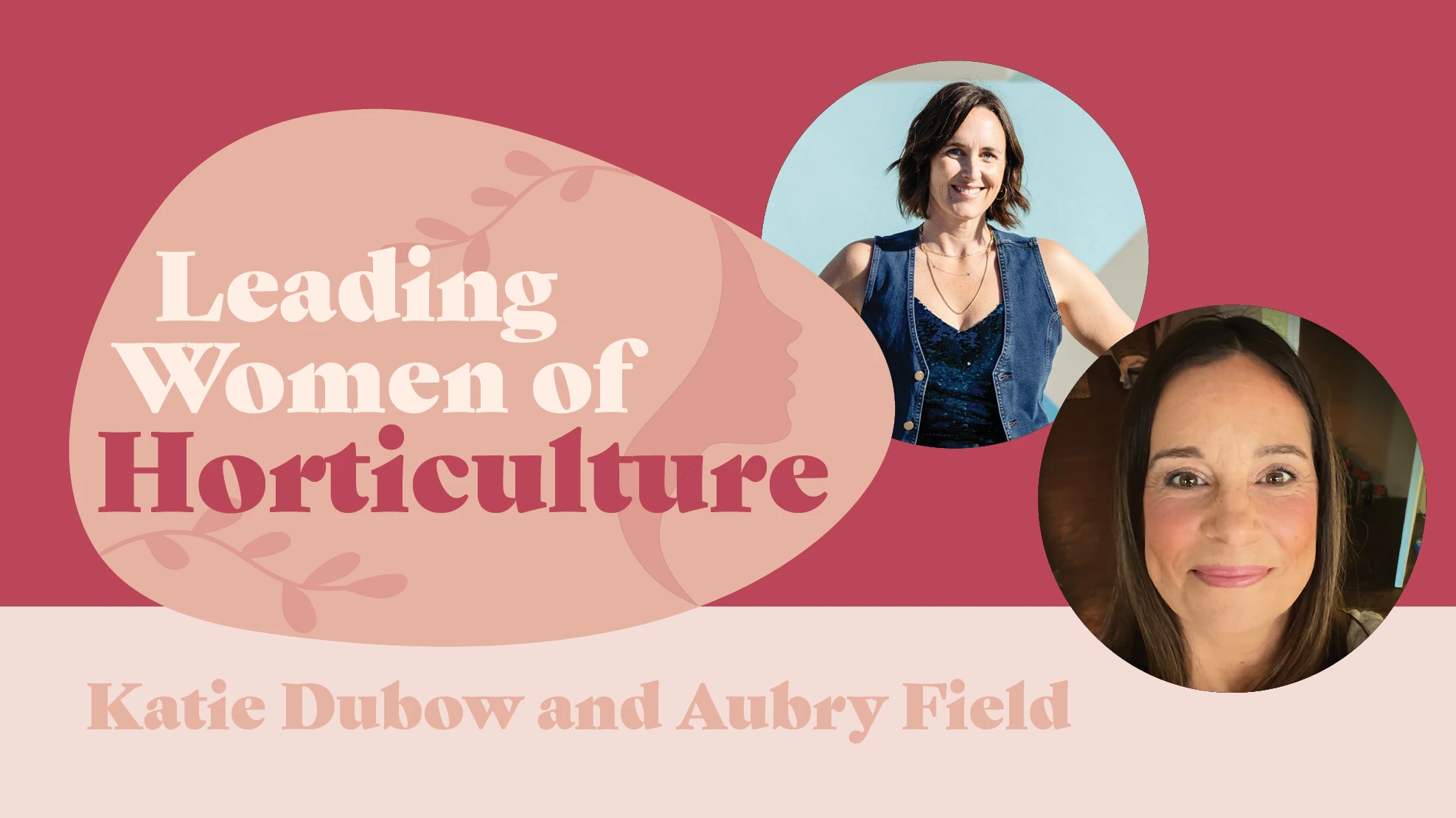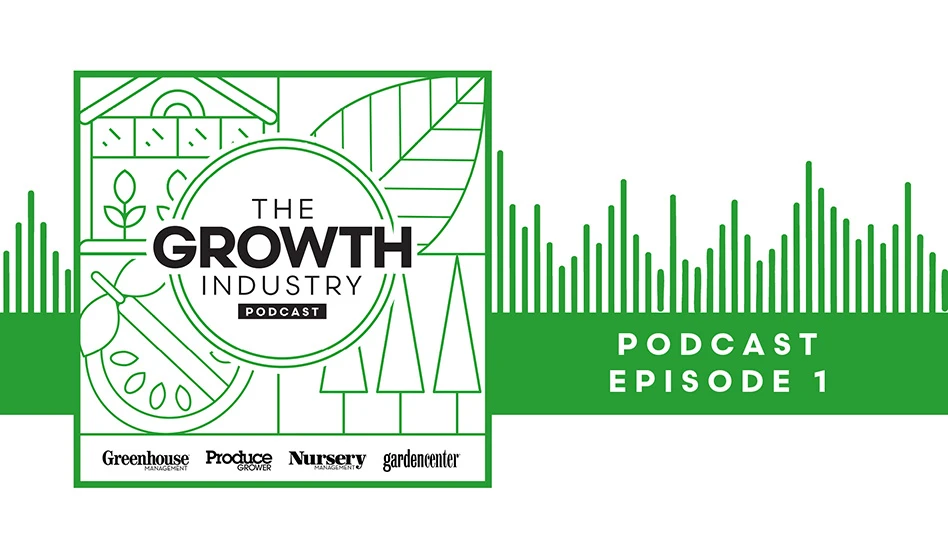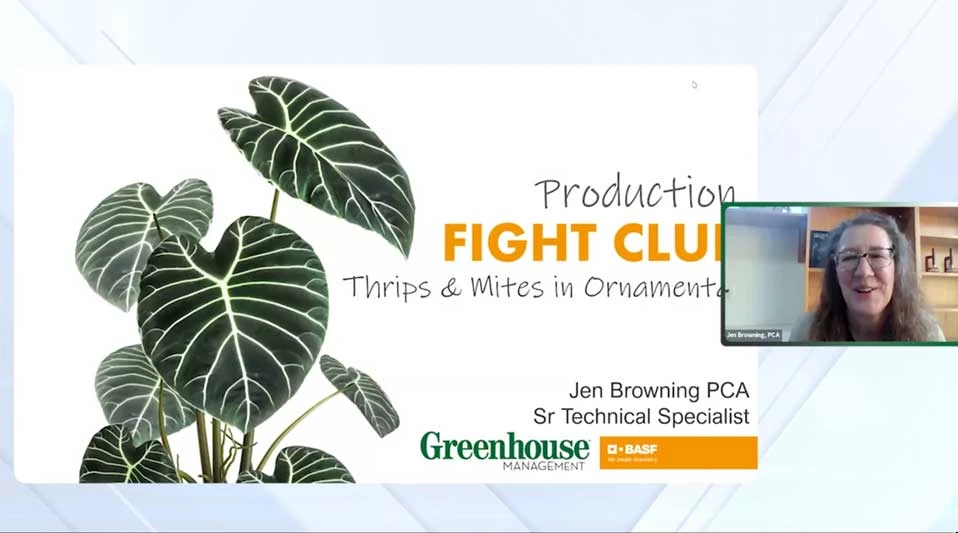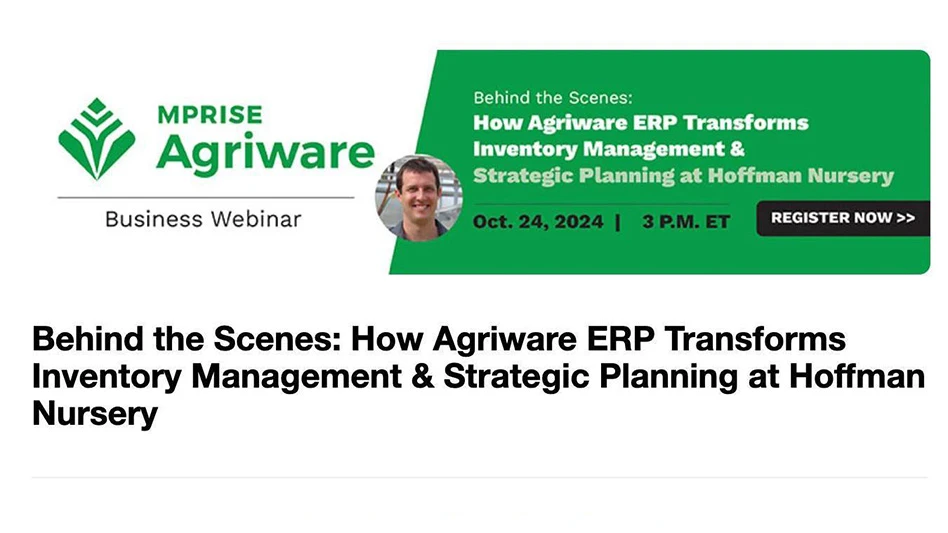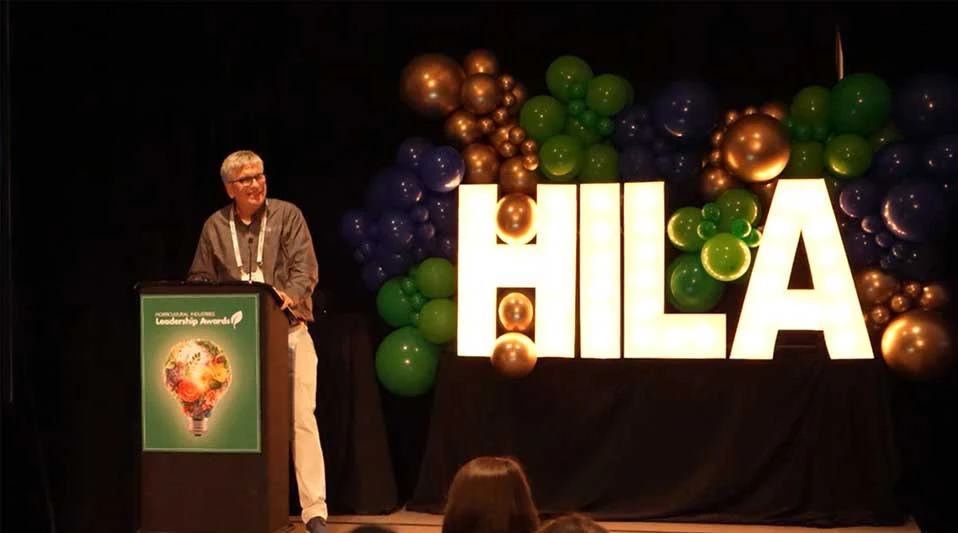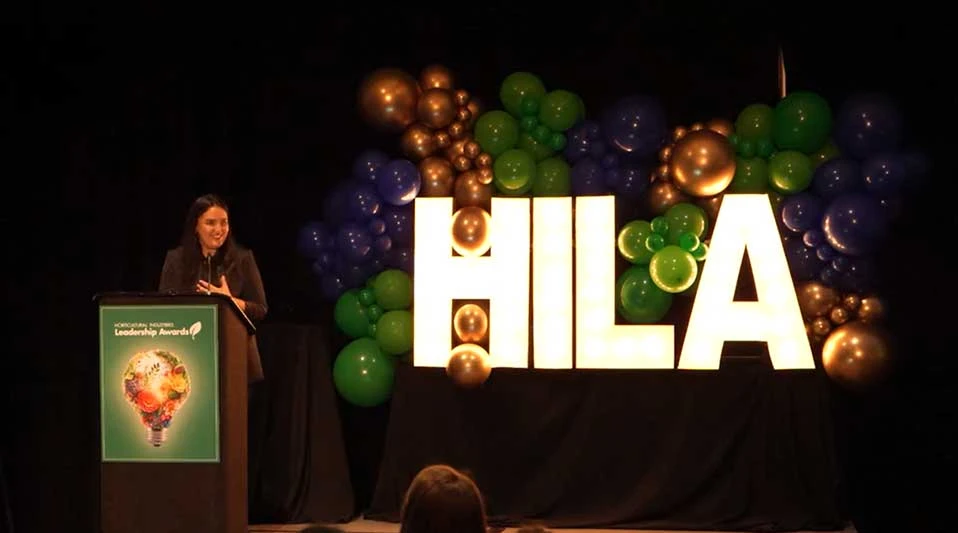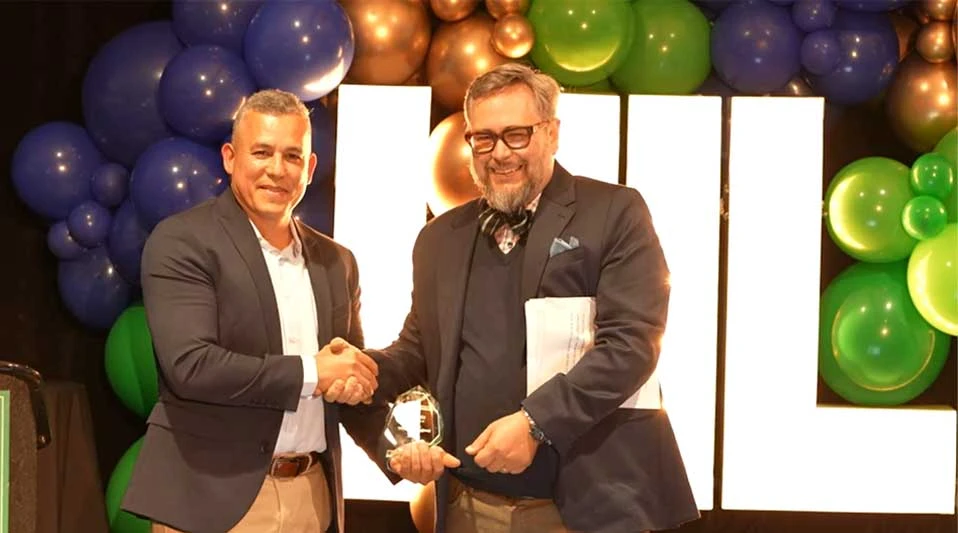
Anna Ball and Terri McEnaney, who both lead legacy horticulture companies, make mentoring and encouraging the next generation a top priority.
Kelli Rodda: Did both of you plan to go into horticulture? And if not, what was that hook that got you involved?
Terri McEnaney: I think we were both born into horticulture. But I did not plan to go into horticulture even though my first job was working at the nursery in our propagation department. We had three little glass greenhouses, and I worked there in the summers and thoroughly enjoyed that all the way through college. But when I went to school, I didn’t see horticulture as an opportunity for me and went into accounting. I went to work for 3M for quite a few years, and that kind of sent me down one path. But when you grow up in this business, it kind of always draws you back in.
Anna Ball: That’s right. It does. I’ve always had a great deal of respect for Terri because you did work outside the industry, which of course is wonderful and brings a great perspective, but something I did not do. I didn’t plan to go into horticulture either. So, we are similar in that respect. I did several odd jobs in my 20s and never really thought about going into the family business. And then one year I decided to take a job in the company, and I was actually quite amazed at how fun and interesting it was. I thought, wow, this could be something.
TM: I am curious when you came into the business, Anna, which of your family members influenced you the most? Not necessarily to get into horticulture, but in any way, and how did they support you?
AB: It was really my dad. He was running the company at the time, and looking back, it was really a time of big transition for women because there weren’t any women in management back then. And he was old school, he was just like most of his generation. But I have to say, I think he came around to the idea of women in management a little earlier than the rest of his generation. Except for the dress code. He always fought women wearing pants. He fought that until he had to give in. But other than that, he was pretty modern in his thinking. So, he was hugely influential with me. He taught me everything about business. And as time passed, he became a big supporter of mine. What about you, Terri? Did you have a big family supporter?
TM: Fortunately, our offices are in the original homestead and my grandparents built a home across the street. When I wasn’t quite sure what I was supposed to be doing or one of my ideas was shot down, I’d go see them. At one point, I was thinking about going back to 3M, and they told me, ‘The company really needs your influence — your perspective is different than some of the others.’ And that helped me recognize that I can make a difference. And look at today — so many businesses in our industry are owned by women or have great women leaders in place.
It’s also important to have mentors outside of the family. I participated in some outside organizations that let you share your challenges and issues and have them be brutally honest with you and give you that encouragement to be able to go back and make hard decisions.
AB: That’s great. If you look at those mentors, Terri, is there any one piece of advice that sticks out that you’ve used over and over again that has helped you?
TM: In general, they taught me the importance of listening and gaining perspective from others to then form your own position or your own strategy, whatever it might be, within your company. But one of our old board members used to say, ‘You can get up and talk all day long to your employees, but they really just want to know are you gaining or are you losing?’ And that kind of brings it down to the basics. And that piece of advice helped me communicate what’s important to people from their perspective.
AB: Really, that’s so true. You’ve got to think of the person you’re talking to, their perspective. I don’t like conflict, and that’s always been a problem for me because there’s a lot of conflict in business. But my dad always used to say, and I still use it to this day, ‘Put your shin guards on, and go on in.’ And honestly, that’s been so helpful to me because really I think what he was saying whatever you have to do, just accept that it’s going to be difficult and prepare yourself mentally for it, but go ahead and do it anyway. Don’t avoid it. So, that’s been something that one of those things that just stick with you forever.
KR: Since we’re all talking about mentoring, what kind of improvements can the green industry make to mentor the next generation across all genders?
AB: I think the industry is doing a much better job than we used to, but of course we can always do better. Terri and I are both involved in Seed Your Future, which is a nonprofit that’s trying to get more people into the industry. And I think we’ve made a lot of progress with colleges and universities, because the enrollment in horticulture is up. I think we can do a lot more with high schools. It’s also important to have a mentoring program in your company. Remember, the informal mentoring is just as important as the formal mentoring. Involve a young person in a meeting for observation or bring them with you on a trip.
TM: Anna, could you share with us one message about the green industry that you’d want to convey to someone contemplating a horticulture path?
AB: I talk to students a lot, and what I tell them is I think the size of the industry is hugely beneficial because it’s small enough so that one person or one team of people can make a difference in the industry. It’s also big enough so that there are a lot of opportunities. It’s also super friendly, and I think that’s a huge advantage, and it attracts young people. So, those are some of the things besides the obvious one, of course, is how plants have the possibility to improve society. And I think that’s very inspiring to young people, too.
TM: They bring a totally different perspective. They bring the perspective of our customers of today and into the future. And so it’s exciting to step back and let them share those ideas. And I always tell my kids that you might not get everything approved the first go-round, but keep advocating for the things that you see. And eventually, those things come together. Somebody with any type of a background can come in and influence our industry and have a career. I think that perception that you can’t come into horticulture and make a good living is wrong.
AB: That’s right. And you reminded me of something that I try to tell the students. Anything you’re interested in, you can do it in horticulture. If you’re interested in computers or you’re interested in construction or you’re interested in engineering, you can use that skill in horticulture. You don’t have to be a plant person.
AB: Terri, you started your career with 3M, which is so cool, and really spent quite a bit of time there and learned from there. Do you encourage the family sons and daughters to work outside the industry first?
TM: When I came back to the family business, I advocated for others getting that outside experience. One of the things at 3M was 25% of the sales of the business were supposed to come from something new within the last five years. So, what do we get in our industry? What’s new? Getting into intellectual property and bringing new products to market, it was something that we grabbed onto. So, we encourage if somebody from our next generation is going to come into the business, that they go out and get some other experience, whether it’s in the industry or something totally different.
KR: What about the green industry inspires you the most?
TM: I love that we’re creating beautiful things, beauty in our world. We’re able to inspire people to enjoy their outside environment. And our challenge is to keep people thinking about that and how important that can be as they’re raising their own children, or the influence a grandparent can have on planting a garden. And I love being in an industry that believes in partnerships, believes in sharing.
AB: Terri mentioned the collaboration that happens in the industry. To me, that’s super inspiring. I love to work with other people and try to solve challenging issues in the industry, but really the power of plants is what inspires me, like the ability of plants to improve your physical and mental health.
But honestly, we can’t forget about the beauty of plants. And people need beauty. You can’t live without it.
KR: Do you have any parting thoughts?
AB: One of the things that strikes me when I look back on the last few decades of horticulture is the importance of relationships. We had a company come in last month who we have been doing business with for almost 100 years. I would like to tell young people to work on your relationships, never burn any bridges and be kind to people. It makes life more interesting, and it encourages innovation.
TM: Embrace the things that bring you joy. I find a lot of people in our industry are able to achieve that because they can find their niche and their passion, and it does bring them fulfillment.
This article appeared in the March 2025 issue of Greenhouse Management magazine under the headline "Champions for the cause."
Latest from Greenhouse Management
- The Growth Industry Episode 3: Across the Pond with Neville Stein
- A nation of gardeners: A history of the British horticulture industry
- How Izel Native Plants is solving the native plant conundrum
- Trends: Proven Winners 2025 perennial survey shows strong demand
- Online registration opens for 2025 Farwest Show
- Cashing in with customization
- The Ball Seed Difference
- Lawsuit challenges new H-2 visa rules

